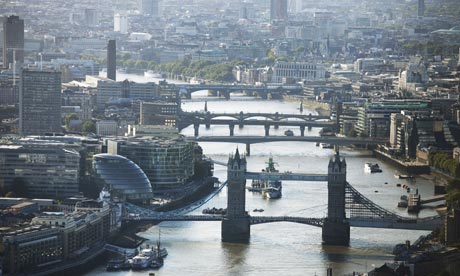Labels: waste
MONDAY, JANUARY 25, 2010
15% Gets Wasted - Official-----(So that's £75bn pa. !!!!!it comes from HMG.Just flushed away down the bog.)
Total Place is a new initiative that looks at how a ‘whole area’ approach to public services can lead to better services at less cost. It seeks to identify and avoid overlap and duplication between organisations – delivering a step change in both service improvement and efficiency at the local level, as well as across Whitehall.
Tuesday, 26 January 2010
We've just had a very interesting new estimate of public spending waste (HTP Matt Sinclair).
According to a detailed study of spending in London, 15% of what taxpayers spend on public services gets wasted. In London alone that amounts to £11bn pa, and if extrapolated across the entire country suggests total waste is running at £75bn pa.
Now, here on BOM we've quoted a number of overall waste estimates over the years, and most of them come out even higher at around 20% (eg see this blog). But the interesting thing about this new estimate is that it comes from HMG.
Specifically, it comes from a operation called Total Place, which has been set up by the Treasury, and is jointly sponsored by the Department for Communities and Local Government (DCLG), and the Local Government Association. Here's how it describes itself:
What they are focusing on in particular is how Labour's complex web of quangos, agencies, and top-down initiatives collide at local level in a maelstrom of duplication and inefficiency - again, something we've blogged many times. And this 15% is the estimate of waste just on the public services delivered to us locallyhere in the UK (ie excluding things like defence, overseas aid, EU budget, as well as most of the entitlement spending on welfare benefits).
So that's £75bn pa.
Or £3,000 pa for every single household.
Or the entire annual tax take from VAT.
Just flushed away down the bog.
PS Do we have a solution? Yes we do - radical decentralisation of our public finances, with local authorities made responsible for both running and funding our local public services. We will be blogging about this at greater length within the next few weeks.
Posted by
Britannia Radio
at
00:05
![]()

























